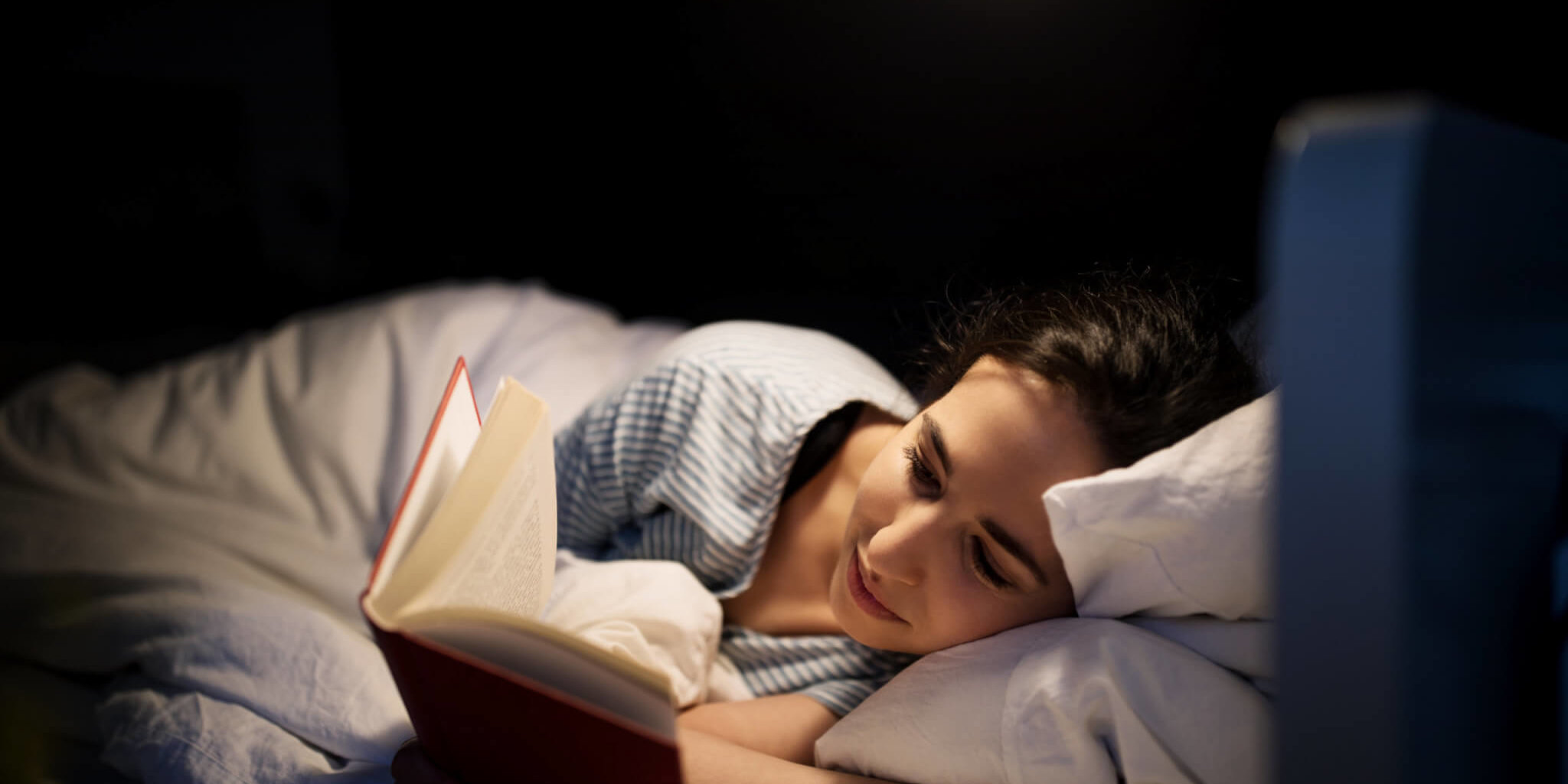My eyes popped open. My brain was already rambling as if I had awoken mid-thought. I looked over at the clock and let out a big sigh—2:00 am. My husband and dog both snored in unison. I tried to go back to sleep but couldn’t seem to get comfortable. The pillows all felt too stiff, the air too stale, and all the snoring, well just too loud. I laid on my back staring up at the ceiling.
We lived on a busy San Francisco street at the time and cars would zoom by streaking lights across our room at all hours.
“If we lived somewhere quieter, would I sleep better,” I wondered, just as my partner chortled and rolled the opposite way, pulling all the covers with him.
But the truth is that even if I slept in a soundproof chamber with no city sounds (or snorers), I would likely have difficulty staying asleep. This wasn’t San Francisco’s or my husband’s fault, as convenient as that would have been.
I’ve had difficulties sleeping since I was a little girl, when I would spend entire nights trying everything from flipping around on the bed so my head was at the other end, to putting my pillows in the refrigerator. As an adult, the stakes only became higher as I often had to teach a yoga class early the next day.
I had sought help numerous times over the years. Most doctors would just pull out their prescription pad and tell me to stop drinking caffeine. I did have phases where I slept better (sometimes because of medicine, sometimes not), but they were rare and this particular period of insomnia was not only negatively affecting me but had started to bleed into my marriage.
I glared at my husband in the dark. How can he sleep so easily? He rolled over and saw me seething: “I think it’s time to see a doctor again.” I softened immediately. He was right.
That week I met with a new doctor who asked me about my “sleep hygiene.” I was confused at first. Sleep hygiene? Did he mix up concepts? Was he trying to ask something else?
It turns out that sleep hygiene is a very real thing, and mine was not very hygienic at all.
What is sleep hygiene?
Sleep hygiene consists of all the behaviors you engage in throughout the day that ultimately affect your sleep. I had always thought sleep habits were limited to what you did right before bed. Turns out that every choice we make from the very moment we open our eyes affects what happens when we later try to close them.
Some of the concepts are fairly intuitive, like looking at what time we stop consuming caffeine or what time we go to bed.
But did you know that what time you wake up can also affect your ability to fall asleep?
Or that simply turning the lights down after dark can significantly increase melatonin, our most important sleep chemical? Most of us know about melatonin as something we buy in a bottle, but switching our phones to night mode earlier can also help our body naturally produce it.
Here are 5 surprising ways you can improve your sleep:
- Wake up earlier. I know, I know. You’re exhausted from not sleeping all night and can barely get out of bed, but our bodies are actually primed to rise with the sun. Alarm clocks have only been around since 1787, but modern Homo sapiens are believed to have originated 200,000 years ago, while the human lineage is estimated to have started 6 million years ago! With that data, sounds like our internal clocks are way more reliable than our iPhones.
- Only use the bed for sleep. When you’re tired after a sleepless night, the bed can feel like it’s calling you by name, but according to the American Sleep Association, using our beds for anything other than sleep, like working on our computers, eating food, even watching television, can hamper our brain’s ability to associate the bed with sleep and delay falling asleep.
- Open the windows. Sleep experts agree that we sleep best in cooler, fresh-air climates, suggesting we keep our bedroom temperature between 60 and 67°F. This may sound quite cold for some of you, but research has shown that we all sleep best when cold. Turns out little 9-year-old me was onto something when she’d put her pillows in the fridge.
- When you wake up in the middle of the night, get up. Rather than tossing and turning for hours at a time, most sleep experts recommend that you actually get up and go do something, like get up and take Dream Serene or do a couple of light stretches. This is related to the brain’s associations with sleep and the recommendation that we should only be in bed when tired and sleeping. But before you reach for your phone or grab that remote, read #5 on our list.
- Paperback books for the win. A 2014 Harvard sleep study found that people who used e-books (this includes iPads/iPhones) before bed had significantly worse sleep than those who used printed books. In addition to the blue light of electronics affecting our melatonin production, the people who used the e-books were found to spend much less time in the important REM (rapid eye movement) cycle of sleep. As a result, those using their phones or tablets were both more wired before bed and sleepier in the morning than those who used printed books. Time to bring the bookstores back!
| *This statement has not been evaluated by the Food and Drug Administration. This product is not intended to diagnose, treat, cure, or prevent any disease. |
 Sarah Ezrin is a freelance writer, world-renowned yoga educator, popular Instagram influencer, and mama based in the San Francisco Bay Area. Her willingness to be unabashedly honest and vulnerable along with her innate wisdom make her writing, yoga classes, and social media great sources of healing and inner peace for many people. Sarah is changing the world, teaching self-love one person at a time. For more information please visit her website www.sarahezrinyoga.com.
Sarah Ezrin is a freelance writer, world-renowned yoga educator, popular Instagram influencer, and mama based in the San Francisco Bay Area. Her willingness to be unabashedly honest and vulnerable along with her innate wisdom make her writing, yoga classes, and social media great sources of healing and inner peace for many people. Sarah is changing the world, teaching self-love one person at a time. For more information please visit her website www.sarahezrinyoga.com.






